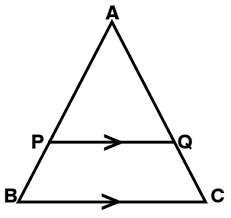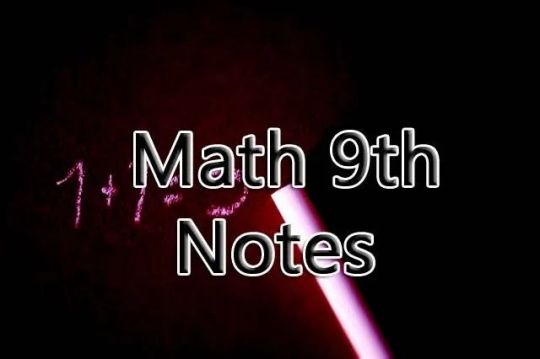#Pythagoras Theorem Class 10
Text
My self-pitying post
I do not know how to better name this post, but this seems most accurate. Because I understand that I made a wrong turn somewhere, and it led me here. My life isn't in shambles, but I feel like it is. So here's my sob story: I am not the victim, but someone who could've done better and can do better and just needs to let this out into the world somewhere. It may make someone feel better about themselves. Someone may relate. Someone may make fun of me. It is what it is. To summarise, I'm giving myself an ultimatum before I give up living: only go through with it if I cannot improve my life until my 21st birthday in August.
Just a heads up, thia is rambly and some parts dont relate to the main issue. I just let the words flow.
I was a bright child. I loved math and computers. I still do, in theory. My family immigrated to the UK when I was 9/10. I didn't speak any of the language. So, as it was expected, I didn't learn anything in my first year of school. The tutor the school gave me to learn English didn't help me at all and would get angry and yell at me when I didn't understand a word she was telling me- she showed no pictures and did not speak my native language, so I had no idea what word she wanted me to understand. The kids were no better. I did not understand it then, but they only spoke to me to bully or make fun of me. I don't know whether it was a blessing or a curse that I did not realise then. But I did understand when, on separate occasions, different boys tried to assault me when I went to the classroom to get something during breaks or at the park outside of school. And how the girls who bullied me would block my exit.
I had to fight past them to leave. Only one or two students at the school were genuinely kind- ironic for a Christian school. As such, in my perpetual loneliness, I spent the lessons drawing and my breaks reading in my native tongue. The only lessons that brought me joy were maths. I was ahead of the class due to my interest and my mother's tutoring at home. By the time they reached fractions, I had been memorising the Pythagoras theorem. Since math was going well, no one cared that I was failing Spanish (and in secondary, I was made to learn French, so that was a slight loss).
In secondary, I was in the top set for maths and the bottom set for everything else- but only for a short time. I had begun consuming English books, and my mum made me read them aloud to memorise the words. I remember one instance clearly when I had two copies of Harry Potter and the Philosopher's Stone in front of me- one in Polish and one in English- and I was going through them page by page to grasp the context. It's not the best learning method, but it's a core memory for me. In year eight, I moved up to second set; by year 9, I was top set in everything. I also made some real friends. I had 4 I could call my closest and many others that weren't as close, but I still enjoyed their company. Little did I know that only one would stick by my side all these years. Two dropped me in year 9 with no explanation, and one just stopped texting back after sixth form. I joined clubs, became a prefect, and had two job experiences by year 11. It was going great. For my GCSEs, I convinced my head of year to let me take computer science instead of French since the school wanted everyone to take a language. I also wanted to do Drama, but the choice was between Art and Drama, and my mum decided art would be more beneficial. Considering that the subject made me hate drawing for years, while my love for the performing arts persisted, I would disagree, and my mum eventually conceded that she should've let me study it after I kept buying tickets out of my allowance to watch plays on the West End.
I passed my GCSEs with flying colours. And my first A-level that year- Polish, having done the GCSE for it a year prior.
At A-levels, it all went downhill. I barely passed maths. I would blame COVID, but I would game through the online classes, so I am more to blame than a virus. I did alright in Physics and well in computer science and psychology. But that's when my tearful phone calls started after my exams. My mum would stress out after each call as I began going frantic and anxious over every exam answer. My best friend stuck with me through countless nervous breakdowns and anxiety attacks. I love her more than anything and hope I can pay her back for all she did and endured because of my frail emotional state. She was the only one who knew I was having thoughts of ending it all, the first to know I was bisexual and that I wanted to leave the church. I think she was the only thing keeping me alive, my closest confidant, my sister from another womb.
University started on a high note. We were still in quarantine, so there were only a few opportunities to make friends. I paid little attention to all the content of the lectures as I had covered it in A-Level. I did really well in the first year. It's too bad that it doesn't contribute to my grade. In my personal life, I was working out and building soft skills to help me develop myself.
Year two rolled in with languish or undiagnosed depression. I do not know; I can't afford a diagnosis and would have to wait years to get one through the NHS. I did some volunteering but stopped after an older man stalked me and kept harassing me while I was helping out at a science fair for children. Another volunteer noticed and helped me out, but after reporting the man to the venue, we found out he had done this before to other women and to forgive him because he is autistic. Which was no excuse, but I was too shaken to fight. That year, I failed one module and only passed another by a percentage, still calling my mum in tears after each exam. I stopped showering regularly. And barely brushed my teeth.
Now, here we are. Semester 1 of my third year came and went. I attended a few meetings for the societies I'm in. One module failed utterly, and waiting for the results of the other two (but I'm not hopeful). I am behind on my dissertation work (which is meant to include a technical aspect), barely taking care of myself, six hours away from my only friend, with no romance in sight and wanting to just disappear from the world. I still love computer science and math in theory but can't bring myself to study them. I can't drop out as I won't be able to afford to return to my studies. I hoping to scrape a 2:1 for my final grade, but that will require near-perfect grades this semester.
I do not know how to proceed. I won't drop out, but it all seems impossible. I don't know if I will end it all. I might, I might not. I will wait 6 months, though, until my 21st birthday. Maybe I'll figure something out. Perhaps I will be able to do the integrated masters my course includes. Maybe I will barely pass and have to get experience to do the master's and the PhD I so desire. I will let you know what will happen when the 19th of August rolls around. I will try to exist to the best of my ability.
After all, the last time I gave myself six months was when I was 15. And I'm still here.
#vent#burn out#ex gifted kid#tw: passive suicidal thoughts#tw: mention of harrassment/assult#sob story#blog#tw: thoughts of suicide#tw: plans of ending it all
9 notes
·
View notes
Text
okay so. last night i scrolled past some random podcast video ad on my fb feed, where two women were talking about “i want to teach my kids to have a healthy relationship with money”; which of course is a great thing. but then one of them went on with the classic, tired tangent you see online about “oh so we learnt pythagoras’s theorem, but NOTHING about high interest bearing accounts and home loans etc at ALL in school!!! how dare they teach us about Pythagoras but absolutely NOTHING about life skills like saving for a home!!!???”
like effie or whatever your name is. we did learn about basic interest in school, specifically in year 9 & 10 maths and probs in senior general maths too- even though i dropped maths for years 11 & 12. we did learn about how to calculate double time & half pay in maths. we did learn about saving money and budgeting in maths. but lo and behold, you were 15. and so, like many 15 year olds (very esp myself back in 2010 for example) you ignored this stuff and didnt think that it was important. like what teenager goes to apply for a car loan with a low interest variable rate of 7.5%??? not one. what 15yo actually cares about interest and how to calculate it???? not many. but maths teachers, to the best of their ability, do try to teach these things to the stubborn kids who don’t want to listen or even do the work. but it’s because they’re abstract concepts, in many ways, to kids. they defs were to me. i didn’t want to know anything about them (or mind you i didn’t want to know anything maths based bc to quote 15yo me i “loathe, despise and detest maths. so therefore i don’t have to try at it!”). and i think many teenagers who struggle with maths think like that.
but then we latch onto the obvs memorable names like pythagoras or fibonacci or just the all-encompassing term of algebra, and totally dismiss it, when we’re older, as pointless. like yes. don’t get me wrong. algebra, even without my distinct lack of trying at it, did send me into deep confusion and to *sleep acting* sleep. but for fucks sake, you can’t expect teachers and the school curriculum to cram EVERYTHING into a school day like life management skills.
i think this is one reason why teachers are so burnt out. because people like this (and generally the internet at large now) keep spitting out these stupid as fuck lines about “WE DONT NEED ALGEBRA AND PYTHAGORAS!! we need life skills classes!!! why don’t schools and teachers totally disrupt core maths skills learning and teach life skills like how high interest accounts work?!” like no. that’s a parent’s job. or even an extension project for more engaged kids thing. or even, if a kid is interested in this stuff, they’ll research it themselves. high schools don’t need to jam “life skills” into their curriculum. especially when globally, it seems, teachers are burnt the fuck out bc of low pay, bad behaviour from both kids & parents and already overloaded class planning and admin etc etc etc that goes with being a teacher.
because although i still see maths as a complete mystery tbh, i can now appreciate that it’s there in school curriculums to try to teach logic and order and systems… in a way much different to english and other artsy subjects like drama and history, that i was good at, do. but this is always ignored, bc the underlying logic of maths is also devalued as being “unnecessary and impractical” all bc no one particularly enjoys or likes algebra…. and just also conveniently forgets that you are taught money skills in maths; albeit if it is annoying…. because why the hell would you buy 70 pineapples and then split the dividends of selling those 70 pineapples amongst you and 3 of your friends??? did you buy them with a 10% discount??? what is the profit and loss of those 70 pineapples??? how do you budget and save up to buy 70 pineapples???? who knows. no one knows. except if you show your working and reasoning- which no one (and not definitely not me both now at 27 and back then) wants to do at 15 years old- let alone at 30 or 40 or whatever other age.
just yeah. i am so sick and tired of people whinging and bitching about the “we should replace pythagoras with life skills in maths!! teach me about high interest bearing accounts and how to apply for a home loan when im 15!!” when teachers are already over-burdened enough already… and if you’d just bother to find your old year 9 maths textbook from whatever year, you’d find that you did learn basic money management skills, then and there. but it went over your head, like it should have when you were 15. and like. applying for a home loan is almost null and void at this point, with how real estate and interest rates are globally (or domestically here in aus) rn. shut the fuck up and let kids be kids, vicki. and let teachers be teachers, when they’ve already got enough on their plates as is, vicki.
and also. the above doesn’t really factor in how kids would feel about so-called “life skills” classes being forced into their already jam-packed class schedules. maybe some kids would thrive in a class that gives them assessments on how to set up a bank loan for anything- a house, a car, a boat idek. or do a report how insurance premiums are set up. or what the process is for working out your superannuation (here in australia) accounts and paying your taxes.
but on the other hand, i think many kids (like 15yo me for example) would resent and hate to have another class that’s scheduled between maths and geography- or maybe gives them an extra period at school some days (eg like the catholic school i was at from years 7 to 10 did on fridays until i was halfway through year 7, i think, in 2008). no kid wants a 7 period friday. no kid wants to have a mandatory life skills class on a friday afternoon about how to file taxes and how to apply for a bank loan. when they’re already up to their eyeballs in english, history, geography, PE, religion (since i was at a religious school) and whatever other subjects they’ve got in junior years assessments and/or exams. 
and if it’s in senior years: how would it be assessed??? would they try to stuff it into a year 12 end of year exam and cause kids to have mental breakdowns all because they can’t remember the difference between CTP car insurance and regular car insurance in a HSC exam in new south wales?? or remember the correct definition of variable rate home loan??? like if i had to sit through that as a COMPULSORY exam at the end of year 12 back in 2013 i would’ve had even more of a mental breakdown than i already had back then. and it would’ve sent me into a further panic attack mode around my ATAR (uni entrance mark).
just. i think all these comments people always throw around about “they need life skills classes in schools so you learn about home loans and taxes and wages and everything Adulting™️ at school… which is FAR MORE important than pythagoras in maths or shakespeare in english and/or drama class” is really not factoring in both the capacity of teacher workloads and also kids workloads at school when EVERYTHING has to be assessed, examined AND reported on these days. it would be a nightmare.
8 notes
·
View notes
Text

"Check out this gorgeous, aching passage about music theory by the 17th c. Mexican writer and polymath Sor Juana Inés de la Cruz (1648-1695)...the search continues for her lost music treatise (La Caracol [the Snail--see her comment below about likening harmony to a spiral]).
"'Lady, do you ask me for concerts when during my entire life I have done nothing that sounds well to me? And so far as composing is concerned, what do note shapes, ciphers, proportions, mensurations, dots, lines, and intervals signify? What schismas are, and whether commas that divide a [whole] tone are correctly calculated-these are problems sufficient to drive me out of my mind. Does the unsingable semitone consist of an odd number [of commas] as followers of Pythagoras contend? Should the perfect fourth be considered a consonance, as Pope John XXII classed it in his Extravagantes communes [Book III, I (1324-5]? In tuning an instrument does so small a quantity as a comma make a difference? Does the dot of alteration that affects the note after the dot also determine syllable placement? Is the maxima the time unit in major perfect mode and the longa the unit in minor perfect mode? How does tripla mensuration (3/1) differ from sesquialtera (3/2)? How much durational value does an imperfected note lose-most of it (as a void) or only a part, and what circumstances govern the amount of the loss (caused by imperfecting it)? Does the space left between notes in a given voice part signify anything? Can any other intervals than octaves and perfect fifths serve (at cadences)? Does the blackening of note shapes that lessens their durational value have any other (ancillary] significance? How is the harmonic mean to be distinguished from the geometrical and arithmetical means? Is all music governed by only two signatures, one designating [duple or triple] mensuration, the other the succession of pulses? Does plainchant when sung solo admit of flats and sharps and do varied note shapes [in plainchant] signify differing durations? Does the ratio between ut and re equal that between re and mi and the ratio between fa and sol equal that between sol and la? And although the difference between 10:9 and 9:8 is scarcely perceptible [to the ear], does the difference truly matter? Can the enharmonic genus be perceived audibly, or only intellectually? Does the term 'chromatic' best apply to black keys used on the keyboard or instead to notes sharped or flatted? To finalize: gathering all the extremely detailed data concerning fermatas, staves, cues at ends of staves, clefs, dots, and ciphers, demands much more than my limited capacity, and instead requires ability to conduct a cathedral choir. Is my music instructor needed by beauteous Dona Petronila to add melodiousness to her singing? Can I teach music to an angel? Who would not laugh at my lowly human attempt to instruct so superior an intelligence? But to tell truth, sometime ago I did indeed seek solace for my sorrows with the manic attempt to begin a treatise, thereby endeavoring to see whether abstruse musical theorems can be simplified. In it, if I correctly recall, l likened harmony to spiral, not a circle, and therefore called it El Caracol. But this treatise remains still so tentative that [in its present state] it would not only be unworthy of you, but also would do me no credit to send it. But if Heaven grants me health and further length of days, I will try to improve it, because placing it with you would entitle me to glorious envy.'"
h/t Loren Ludwig
What’s humbling to me as a musician is that many of the rhetorical questions raised by Sor Juana Inés have yet to be answered because no definitive answer might exist.
0 notes
Text
"Class 10 Maths NCERT Solutions: Simplifying Complex Concepts for You"
Are you a student in Class 10 looking for comprehensive and reliable study materials to excel in your academics?
Look no further! In this article, we will provide you with top-notch NCERT Class 10 solutions for Maths, Science, English, and Social Science.
These solutions are designed to help you understand complex concepts, practice effectively, and ace your exams. So, let's embark on this learning journey together!
Why NCERT Class 10 Solutions are Essential?
Before we delve into the subject-specific solutions, it's essential to understand the significance of NCERT Class 10 solutions. The National Council of Educational Research and Training (NCERT) is renowned for developing high-quality educational materials that align with the latest curriculum guidelines. These solutions act as a bridge between students and the prescribed textbooks, offering step-by-step explanations and solutions to the questions presented in the NCERT books.
By relying on NCERT Class 10 solutions, you gain access to:
Conceptual Clarity: Each solution is meticulously crafted to ensure that you grasp the fundamental concepts with ease.
Accuracy: The solutions are accurate, eliminating any chances of errors and misconceptions in your understanding.
Exam Preparedness: Practicing with these solutions enhances your problem-solving skills, giving you the confidence to tackle any exam question.
Time Management: As you practice, you'll learn to manage time efficiently, a crucial skill for scoring well in exams.
Now, let's explore the subject-wise solutions.
Mathematics
Mathematics is often considered a challenging subject, but with the right guidance and practice, it can become your stronghold. Our NCERT solutions for Class 10 Maths cover all the chapters and exercises, presenting you with detailed explanations for every problem.
From topics like algebra, trigonometry, and geometry to coordinate geometry and statistics, our solutions leave no stone unturned. Whether you're struggling with the Pythagoras theorem or finding it hard to grasp quadratic equations, our step-by-step solutions will make it crystal clear.
0 notes
Text
Plotting points on cartesian plane = plotting high score in class 10. How?
Cartesian Plane
QuadrantsAbscissa
Ordinate

Heard about these terms? Sounds quite fancy, right? What if these terms can increase the chances of you getting a better score in class 10 Maths? Confident about this little chapter? Take a test on��SeekoG about coordinate geometry in class 9 to know how much you know.
Why take a test in class 9?
Because strong basics lead to better scores. Take a test so you don’t miss out on anything!
Being a small chapter, coordinate geometry does not usually get the required attention from the students. But this small chapter consists of concepts that can get confusing at times. These huge confusions could be solved by simple basics of the chapter. So, what could be the most basic question about the chapter?
How does coordinate geometry work?
What kind of questions will be there that you need to solve?
All right, the term Cartesian Plane is the base of coordinate geometry. How? As the name suggests, it is a plane on which the x and y axis exists and divides the plane into four equal quadrants as you can see in the image below.
Each point on the cartesian plane has a value that could be found by observation. But if you’re told that you need to find out the distance between two points, what would you do? No need to be extremely worried about this. There are methods to find it. By the way, did you know that there is a different formula if one of the two points that are given is the origin/ (0,0)?
Now exactly here when you think that chapter ends, you might go wrong. The tricky part comes here when we talk about one of the methods of finding the distance between two points through Pythagoras’ theorem. Obviously, there are many other concepts that still might be pending so keep preparing.
Wait! Wasn’t Pythagoras’ theorem in the chapters on Triangles? Well, surely it is there as well. If you also remember this concept of Triangles, try taking a test on the SeekoG app and you will be one step closer to success.
Want a study plan for Triangles? Click here
0 notes
Text
WBBSE Solutions For Class 10 Maths Geometry Chapter 4 Pythagoras Theorem
0 notes
Text
WBBSE Solutions For Class 10 Maths Geometry Chapter 4 Pythagoras Theorem
0 notes
Text
1.पाइथागोरस प्रमेय कक्षा 10 (Pythagoras Theorem Class 10),पाइथागोरस प्रमेय (Pythagoras Theorem):

पाइथागोरस प्रमेय कक्षा 10 (Pythagoras Theorem Class 10) को बौधायन प्रमेय के नाम से भी जाना जाता है।इस आर्टिकल में पाइथागोरस प्रमेय और इस पर आधारित उदाहरणों के द्वारा इसको समझेंगे
प्रमेय (Theorem):6.7.यदि किसी समकोण त्रिभुज के समकोण वाले शीर्ष से कर्ण पर लम्ब डाला जाए तो इस लम्ब के दोनों ओर बने त्रिभुज सम्पूर्ण त्रिभुज के समरूप होते हैं तथा परस्पर भी समरूप होते हैं।
Read More:Pythagoras Theorem Class 10
0 notes
Text
WBBSE solutions for class 10 maths chapter 22 pythagoras theorem ex 22.1
0 notes
Text
Searching FOR JOB AS ONLINE TEACHERS?

Today innovation is getting increasingly more conspicuous in our schools and instructive settings, and is viewed as its very own industry. It grows past school learning. Studies have pointed that informative innovation like online instructive entrances are acquiring foothold all over, and Online Maths Learning Program can give benefits past essentially training a youngster. Internet coaching today consolidates powerful highlights of customary instructing learning experience, however extends that understanding for the kid with the assistance of exploration based assets, very much prepared mentors, supplemental exercises that fortifies the understudies understanding, and customized study intends to address the kid's issues.
Over the previous decade or so there has been a significant blast in online instruction area. Web based mentoring has arisen as a viable apparatus to help a youngster's instructive accomplishments. It started with center around STEM subjects like math's and science, acquiring a great deal of consideration in web based mentoring space, yet now that has poured out over across streams and subjects.
Today understudies at this point don't have to convey hefty books to and fro and go through hours going to various classes, investing energy in the library. The web is your own personal library. With online educational costs understudies would now be able to concentrate from home without going to a coach.
#Online maths classes India#Pythagoras Theorem Class 10#Heron's Formula Class solutions#Mathematics CBSE Class X Test Papers#Online Maths Learning Program
0 notes
Text
Online Maths Learning Program
Mathsgenii is a community of experts with a desire to create a learning environment together. Here, we share a love for mathematics
0 notes
Link
3 notes
·
View notes
Text
Saw my math teacher today. He wanted directions to the FNB bank. I told him to take a 360 degree turn and walk for 1.8 m, then find the coefficient of X using the Pythagoras theorem and then round it up to the nearest 10.
You will see a big pharmacy which is perpendicular to your right, then make an obtuse angle turn. You will see the bank at a distance of about the logarithm of 7 and using the 4 figure table to the anti-log.
Now the shit will know how I felt in math class!!!
0 notes
Text
Alert! Try out the TRIANGLES if the basics are base.
Did you know that there are six types of triangles? Three are based on sides and the other three are based on angles. Can you name all the six triangles?

Are you trying to recall them? Take test now & get your Gap Analysis report to see how much of your class 9 triangles you know & remember properly!
What is the point of taking a test in class 9, when you are already in class?
The point is, the confirmation that your triangles basics are strong enough to boost your Maths score in class 10.
Talking of the basics, despite the existence of 6 types of triangles, many polygons are similar to each other but can you tell if two given triangles are identical or not?
This is probably the easiest part among all the concepts of triangles. Taking a common example of us having similar features as our family. Similarly, a triangle can be similar to another triangle based on a few feature criteria such as:
Angle- Angle (AA) criterion
Angle- Angle- Angle (AAA) criterion
Side- Side-Side (SSS) criterion
Side-Angle-Side (SAS) criterion
Do you know these? That’s great. You know what can make you better at it? A test. A SeekoG academic diagnostic test on this chapter in class 9th will exactly tell you how good you are in each concept.
Another triangle concept that can confuse you with the similarity concept is the concept of proportionality. This concept is based on a theorem. Take notes here people!!
“If a line is drawn parallel to one side of a triangle intersecting the other two sides in distinct points, then the other two sides of triangles are divided in the same ratio.”
Will it be better if an example would have been provided? Definitely!!

It gets better when practical or visual representations are included in resources, right? But do you need a visual representation when we talk about Pythagoras’ theorem? Probably not if you took the Trigonometry chapter’s test in the SeekoG app.
You must be thinking that suddenly why exactly is this topic of Pythagoras’ theorem popped out of nowhere? Here’s a secret this chapter consists of an interesting part that proves Pythagoras’ theorem. Can you remember what the Pythagoras’ theorem says? Hint: It is about one of the types of Triangles. Hopefully, Triangles will be a lot easier now. Still, keep learning because it will be marked along with the knowledge that you’ll be earning.
Want to check why you should not neglect the chapter on Probability? Click!
1 note
·
View note
Text
WBBSE Solutions For Class 10 Maths Geometry Chapter 4 Pythagoras Theorem
0 notes
Text
9th Class Math Notes For Federal-pdf notes

9th Class Math Notes For Federal Chapter #01 to Chapter #17 all chapter pdf format download now.
Class 9th math notes short question, Long question, excersie, and entry test mcqs.
Exercise 1.1
Exercise 1.2
Exercise 1.3
Exercise 1.4
Exercise 1.5
Exercise 1.6
Review Exercise
List of 9th Class Math Notes
- Unit 1 - Matrices & Determinants
- Unit 2 - Real and Complex Numbers
- Unit 3 - Logarithms
- Unit 4 - Algebraic Expressions & Algebraic Formulas
- Unit 5 - Factorization
- Unit 6 - Algebraic Manipulations
- Unit 7 - Linear Equations & Inequalities
- Unit 8 - Linear Graphs and Their Applications
- Unit 9 - Introduction To Coordinate Geometry
- Unit 10 - Congruent Triangles
- Unit 11 - Parallelograms and Triangles
- Unit 12 - Line Bisectors and Angle Bisectors
- Unit 13 - Sides and Angles of Triangles
- Unit 14 - Ratio & Proportions
- Unit 15 - Pythagoras' Theorem
- Unit 16 - Theorems Related To Area
- Unit 17 - Practical Geometry (Triangles)
Source: top Study Word
CHAPTER-1-MATRICES-AND-DETERMINANTSDownload
CHAPTER-2-REAL-AND-COMPLEX-NUMBERSDownload
CHAPTER-3-LOGARITHMSDownload
CHAPTER-4-ALGEBRAIC-EXPRESSIONS-AND-ALGEBRAICDownload
CHAPTER-5-FACTORIZATIONDownload
CHAPTER-6-ALGEBRAIC-MANIPULATIONDownload
Read more: BEST KIPS 9TH CLASS PHYSICS NOTES
CHAPTER-7-LINEAR-EQUATIONS-AND-INEQUALITIESDownload
CHAPTER-8-LINEAR-GRAPHS-THEIR-APPLICATIONDownload
CHAPTER-9-INTRODUCTION-TO-COORDINATE-GEOMETRYDownload
CHAPTER-10-CONGRUENT-TRIANGLESDownload
CHAPTER-11-PARALLELOGRAMS-AND-TRIANGLESDownload
CHAPTER-12-LINE-BISECTORS-AND-ANGLE-BISECTORSDownload
CHAPTER-13-SIDES-AND-ANGLES-OF-A-TRIANGLEDownload
CHAPTER-14-PYTHAGORAS-THEOREMDownload
CHAPTER-15-PARALLELOGRAMS-AND-TRIANGLESDownload
CHAPTER-16-THEOREMS-RELATED-WITH-AREADownload
CHAPTER-17-PRACTICAL-GEOMETRY-TRIANGLESDownload
Read more: PHYSICS NOTES FOR CLASS 9TH
Read the full article
0 notes